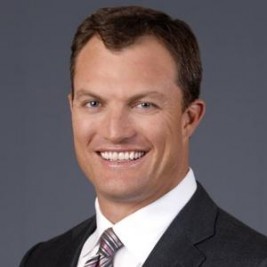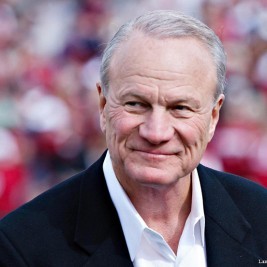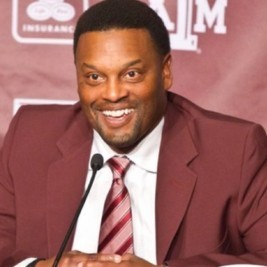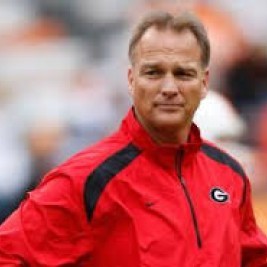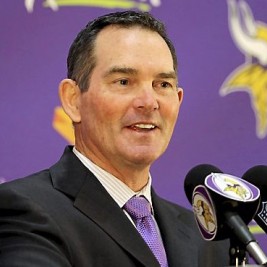
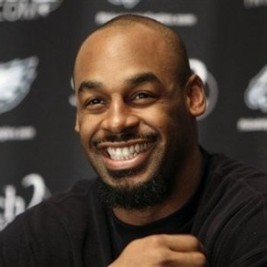
Corporate Appearances, Speaking Engagements, Autograph Signings, Endorsements, VIP Meet & Greets, Store Grand Openings
Book Donovan McNabb for a Speaking Engagement
Businesses, Non-profit organizations, event planners and companies across the country have worked closely with our booking agents to hire Donovan McNabb for a speaking engagements, guest appearances, product endorsements and corporate events. Many of those same clients have continued to turn to our speakers bureau as we can easily align Donovan McNabb’s availability with their upcoming seminar, gala, annual conference, corporate function, and grand opening. Our close relationship with Donovan McNabb’s booking agent and management team further enables us to provide inquiring clients with Donovan McNabb’s speaking fee and appearance cost.
If your goal is to hire Donovan McNabb to be your next keynote speaker or to be the next brand ambassador our celebrity speakers bureau can assist. If Donovan McNabb’s booking fee is outside your companies budget or your unable to align with his appearance availability, our booking agents can provide you a list of talent that aligns with your event theme, budget and event date.
Donovan McNabb grew up in Dolton, Illinois and was a standout quarterback at Mount Carmel High School on Chicago's south side. Mount Carmel has produced such athletes as current Tampa Bay Buccaneers defensive end Simeon Rice, Detroit Red Wings defenseman Chris Chelios, Chicago Bears tackle Steve Edwards, Miami Heat forward Antoine Walker, and former Cy Young Award-winning Detroit Tigers pitcher Denny McLain.
McNabb at first was strongly considering going to the University of Nebraska. He enjoyed the idea of being coached by the lengendary Tom Osborne. However, McNabb decided not to attend Nebraska mainly because he did not want to be labeled an "option quarterback" (the option is the primary play Tom Osborne designed his offense around at Nebraska). He then decided to attend Syracuse University.
One of the most decorated athletes in Syracuse University history, he was a four-year starter at quarterback and a reserve on the school's nationally ranked basketball team. On the gridiron he was named the Big East Conference's offensive player of the decade (1990s) and of the year an unprecedented three times from 1996-98, as well as the first-team all-conference quarterback in each of his four seasons. Later, he was named to the Syracuse All-Century Football team. He also played basketball there, playing as a key reserve in the Orangemen's (now it's called Orange) Final Four team back in 1996, where it lost to the Kentucky Wildcats in the championship game. Ironically, his former teammate from Mount Carmel Antoine Walker was a part of that Kentucky championship team.
McNabb was drafted 2nd overall by the Eagles in 1999, a choice which was famously booed by Philadelphia fans present at the draft. McNabb was chosen ahead of University of Texas halfback Ricky Williams As of 2006, McNabb was the only one of the draft's first four selections expected to be a starter; Williams is currently suspended from the NFL. McNabb started six of the Eagles' final seven contests (missing the December 19 home game against New England, a 24-9 victory, due to injury) as he became the first Philadelphia Eagles rookie to start in the quarterback position since Brad Goebel on October 13, 1991, and the first Eagles rookie draft pick to start since John Reaves in 1972. He saw his first NFL regular season action in the second half against the Tampa Bay Buccaneers in a 19-5 home loss on September 19. He made his first career start at home against Washington on November 14, completing eight of 21 passes for 60 yards in a 35-28 win. He also had nine carries for 49 rushing yards and led the team to a pair of successful two-point conversions (1 rush and 1 pass). With the win, he became the first Eagles rookie QB to win his first NFL start since Mike Boryla (December 1, 1974 vs. Green Bay) and the first Eagle QB to win his first start since Ty Detmer (October 13, 1996 at NYG). McNabb threw the first TD pass of his career (6 yards to TE Chad Lewis) vs. Indianapolis in a 44-17 home loss on November 21.
In his first full season as a NFL starter in 2000, McNabb finished second in the Associated Press MVP voting (24-11) to St. Louis RB Marshall Faulk, who set the NFL record for most TDs scored in a season. Selected as a first alternate to the NFC Pro Bowl squad in 2000 (behind the Minnesota Vikings Daunte Culpepper, San Francisco 49ers Jeff Garcia, and St. Louis Rams Kurt Warner). When Warner was unable to participate due to injury, McNabb led the NFC on a touchdown scoring drive in his first series. Accounted for 74.6% of the team's total net yards in 2000. Only Carolina's Steve Beuerlein (75.3%) and San Francisco's Jeff Garcia (75.1%) had a higher percentage. His 629 rushing yards in 2000 were tops among NFL QBs and the fourth-highest total ever (968 by Bobby Douglass in 1972; 942 by Randall Cunningham in 1990; and 674 by Steve McNair in 1997). His six rushing TDs in 2000 were the most by an Eagles QB since Randall Cunningham also had six in 1988. Broke the club's single season record for most attempts (569) and completions (330) in 2000, marks previously set by Cunningham (560 and 301 respectively) in 1988. Named 2000 NFL Player of the Year by CBS Radio and the Terry (Bradshaw) Awards on Fox Sports and was named to the All-Madden team. Made his prime time debut (ESPN) vs. Atlanta at home (October 1} with his first 300-yard passing game in a 38-10 victory and the Eagles' first since Bobby Hoying vs. Cincinnati at home on November 30, 1997. His 55 pass attempts at Pittsburgh, a come-from-behind 26-23 overtime victory (November 12) were a career-high and the fourth-highest total in team history. Named NFC Offensive Player of the Week after accounting for 90.7% of the offense in a 23-20 overtime victory at Washington. His 125 rushing yards were the most by an NFL QB since the Bears Bobby Douglass and was the sixth-best rushing effort by a QB since 1940 when the "T" formation was introduced. Threw for a career-high 390 passing yards and 4 TDs in a 35-24 victory at Cleveland (December 10) en route to NFC Offensive Player of the Week honors. McNabb led the Eagles to their first playoff appearance since 1996, where they defeated the favored Tampa Bay Buccaneers 21-3 before losing to the New York Giants 20-10.
Earned his second trip to the Pro Bowl following the 2001 season after combining for 3,715 yards of total offense and establishing career highs in TD passes and QB rating. Including playoffs, threw TD passes in 15 of 18 games and 2-or-more in 12 of those games. Named by his teammates as the club's offensive MVP in 2000 and 2001. Led the Eagles in fourth-quarter comebacks in two wins vs. the Giants in 2001. At the Meadowlands, his 18-yard pass to James Thrash with 1:52 remaining gave the Eagles a 10-9 victory. At Philadelphia, wiped out a 21-14 deficit, engineering two fourth-quarter scores as the Eagles clinched the NFC East title with a 24-21 over archrival New York Giants. Tied Ron Jaworski and Tommy Thompson for the most postseason wins in franchise history by a QB. His 8 career playoff TDs trails only Jaworski. Named NFL Offensive Player of the Week after the NFC Divisional Playoff game at Chicago. Completed 26 of 40 for 262 yards with 2 touchdowns passing and added 37 yards and a TD on the ground. That rushing TD was the final touchdown at the old Soldier Field. Became only the fourth QB in Eagles history to pass for 3,000 yards in consecutive seasons - Sonny Jurgensen, Ron Jaworski, and Randall Cunningham were the others. McNabb's Eagles advanced to the NFC championship game for the first time since 1980, losing to the heavily favored St. Louis Rams 29-24.
In week 11 of the 2002 season, McNabb was injured. On the third play of the game, he was sacked by the Cardinals' Adrian Wilson and LeVar Woods. He fumbled the ball, fell to the ground, and held his right leg. He went to the locker room to have his ankle taped, but returned for the Eagles' second drive. His injury was reported to be a sprained ankle, but X-rays after the game revealed that it was a broken ankle. During the game, however, McNabb made an impressive show of toughness. In one of the best passing games of his career, he was 20 of 25 passing, with 255 yards and 4 touchdowns. He also threw an interception. McNabb was out for the last six weeks of the regular season, and returned to face the Atlanta Falcons in the playoffs, but he recovered slowly. The Eagles defeated the Falcons 20-6, but were beaten by the underdog Tampa Bay Buccaneers 27-10 in the NFC championship game.
In late September of 2003, Donovan McNabb was the subject of very controversial comments made by Rush Limbaugh, who worked as a commentator for ESPN at the time, stating that the Philadelphia Eagles quarterback was overrated because the media wanted to see a black quarterback succeed. The comments came after the Eagles began the season 0-2, losing to defending Super Bowl champion Buccaneers and eventual champion New England, both losses coming in their newly opened stadium, Lincoln Financial Field. There has been much discussion about the merit of these comments, which resulted in Limbaugh's resignation from ESPN.
Despite the slow start in the 2003 season, McNabb again led his team to the NFC championship game - yet his detractors pointed out that in his five years in the NFL, McNabb had yet to complete 60 percent of his passes or average seven yards per attempt over the course of an entire season, two statistical thresholds widely accepted as benchmarks for what constitutes a successful season for a modern-day NFL quarterback. Although the slow start hindered his overall statistics for 2003, Mcnabb had the highest quarterback rating(97.5)in the NFL for the second half of the season and also completed over 62% of his passes for over eight yards per attempt. With Philadelphia's 14-3 loss to the Carolina Panthers in the 2003 NFC championship game, McNabb became the first NFL quarterback since Danny White of the Dallas Cowboys (1980-1982) to lead a team to three consecutive defeats in conference title games, prompting some observers to conclude that McNabb "chokes" in big games (his cumulative passer rating in the three conference championship games was 50.5 - a figure that is approximately 10 points lower than what the worst quarterback in the league earns over the course of a typical year).
McNabb's defenders, however, point out that Philadelphia had the worst contingent of wide receivers in the NFL throughout McNabb's tenure with the team up to that point, and perhaps in modern professional football history. In 2003, for example, Philadelphia's wide receivers caught only five touchdown passes - tying the record for fewest in a season since the regular-season schedule was lengthened to its present 16 games in 1978 and that, by going the entire months of September and October without having a wide receiver catch a touchdown pass, the 2003 Eagles became the first NFL team since 1945 not to have gotten a touchdown pass from any of its wide receivers in the first two months of a season.
McNabb finally amassed the kind of numbers that placed him firmly as one of the elite NFL quarterbacks statistically. He averaged 8.26 yards per attempt, completed 64.0 percent of his passes, threw 31 touchdown passes (he also ran for three more), and only eight interceptions. These numbers translated to a Passer Rating of 104.7. Furthermore, he became the first quarterback in league history to throw over 30 touchdowns and less than 10 interceptions in a single season. This dramatic improvement coincided with a massive upgrading of the Eagles' receiving corps, namely the arrival of Terrell Owens, who caught 14 touchdowns. As a result, the Eagles won their first seven games of the season for the first time in franchise history, clinched first place in their division with five weeks still to play in the regular season (becoming only the third team in modern NFL history to do this) and won the NFC's Eastern Division by a record-tying seven-game margin in posting a 13-3 record, the franchise's best 16-game season ever. In the playoffs, McNabb led the Eagles to their first Super Bowl in almost a quarter century, with victories over the Minnesota Vikings 27-14 in the divisional game and the Atlanta Falcons 27-10 in the NFC Championship Game. Owens was not in the lineup during the two playoff victories, and was recovering from a broken leg. McNabb became only the third African-American quarterback to start in a Super Bowl after Doug Williams in the 1987 season and Steve McNair in 1999.
McNabb led his team against a newly-forming dynasty, the New England Patriots, in Super Bowl XXXIX. McNabb struggled at points, throwing three poor and crucial interceptions. Two of these were thrown in New England territory, and one of those two was a rare mistake for McNabb in the red zone. He was also sacked four times. Controversy surrounds the end of the game, as McNabb was reportedly unable to call a play in the huddle, leading to poor clock management by the Philadelphia Eagles on their final drive. Some reports claim that McNabb had the wind knocked out of him by an earlier hit while others assert that he was unduly fatigued or even nauseous (interestingly, McNabb also suffered from a bout of nausea at the conclusion of a 2002 regular-season game played at AllTel Stadium, where Super Bowl XXXIX was contested). Both Coach Andy Reid and McNabb have denied any physical problems which led to the puzzlingly slow pace of play. McNabb finished the game with 30 completions for 357 yards, the third highest total for both catagories in Super Bowl history, and 3 touchdowns. The Eagles lost 24-21.
During the spring of 2005, EA Sports announced Donovan McNabb would be the cover athlete for Madden 2006. Fan reaction was mixed as most NFL players appearing on the Madden football series cover tend to suffer from the Madden Curse the entire following season. The jinx continued, as the Eagles were in last place in the NFC East and failed to make the playoffs for the first time since 2000.
During the summer of 2005, McNabb and fellow teammate Terrell Owens were on non-speaking terms after Owens insinuated that McNabb "choked" in the Superbowl, due to McNabb being overweight, out-of-shape, and lacking in mental toughness. The two would exchange verbal insults at each other via the media through training camp and the pre-season until settling their differences as the regular season approached. However, when Owens made those comments that had him suspended for the rest of the season, it distanced him far from McNabb.
In the Eagles Monday night road opener against the Atlanta Falcons, Donovan suffered a chest bruise and perhaps the beginning of a lower abdominal strain. The Eagles lost the opener to Atlanta, with poor player performances across the offense and defense, in addition to Donovan's injury. A week later, after an Eagles blowout of the San Francisco 49ers at the "Linc", Donovan was indeed diagnosed with a "sports hernia", and that he would require surgery in the 2006 off-season. Even with the injury, McNabb won NFL player of the month for September 2005 and broke the Eagles record for most consecutive 300 yard games, as well as orchestrating an Eagles victory over the Kansas City Chiefs, bringing the team back from a 17-point first-half deficit. In the following game against the Dallas Cowboys, McNabb and the Eagles were on the receiving end of a 33-10 blowout. Drew Bledsoe led the Cowboys to 17 points in the first quarter, and McNabb never was able to get into a rhythm. Donovan's injury appeared to be finally getting the best of him as he struggled in a few games. Also the fact that the Eagles do not dedicate themselves to a running game does not take any pressure off of McNabb during games.
November 21st McNabb decided to proceed with his surgery, thus ending his 2005 season. Mike McMahon replaced him as quarterback in his absence.
In December of 2005, Philadelphia NAACP president and chief editor of the Philadelphia Sun Jerry Mondesire took a shot at Donovan McNabb, saying that he is a "mediocre" quarterback and weak leader who "played the race card" by consciously switching styles from a QB who frequently ran -- the stereotype of a "black quarterback" -- to a traditional pocket passer.[citation needed] McNabb was irate over the comments, saying that people may criticize his play, but if they bring up an issue about race, then there's going to be a problem.[citation needed] Several days later, the national head of NAACP apologized for Mondesire's comments, calling McNabb an excellent quarterback and role model.[citation needed]
In late 2005 and early 2006, McNabb and Terrell Owens ramped up the war of words they'd been conducting for some time when an interviewer asked Owens if he agreed with ESPN analyst Michael Irvin's comment that the Eagles would be undefeated if Favre were the starting quarterback. Owens replied: "That's a good assessment, I would agree with that, just with what [Favre] brings to the table... A number of commentators will say he's a warrior, he's played with injuries. I feel like him being knowledgeable about the quarterback position, I feel like we'd probably be in a better situation."[citation needed]
McNabb said that Owens created a huge rift with the comment. He added that Owens should have picked a black quarterback instead of Favre for the comparison, and that Owens' words were "a slap in [his] face". McNabb further said that what Owens had done to him was "black-on-black crime" (a phrase McNabb's father, Sam McNabb, has also used to describe the matter).[citation needed]
McNabb set the Syracuse and Big East career records for touchdown passes (77), touchdowns responsible for (96), passing yards (8,389), total offensive yards (9,950) and total offensive plays (1,403). He set the school's all-time records for total yards per game (221.1), passing efficiency (155.1) and yards per attempt (9.1). He finished his college career ranked second in the school's history with 8,389 yards passing, 548 completions, 938 attempts and a 58.4 completion percentage. Started every game during his career, compiling a 33-12 record. As a senior, led Syracuse to an Orange Bowl berth vs. Florida as he completed 157 of 251 passes (62.5%) for 2,134 yards. His 22 TD passes tied the school's single season record set by former Eagle Don McPherson (1987). Also rushed 135 times for 438 yards and 8 touchdowns.. Ranked sixth in the nation with a 158.9 passing efficiency rating and 22nd in total offense (233.8 yards per game). Tied a school record with 4 TD tosses vs. Cincinnati and accounted for 5 TDs vs. Miami (3 rushing and 2 passing). Amassed 2,892 yards in total offense in his junior season to set a school record. As a freshman, was the Big East rookie of the year and tossed a 96-yard TD pass vs. West Virginia, the longest in SU history. He redshirted in 1994.

Let our team of booking agents help create a memorable experience with hiring Donovan McNabb for your store grand opening, golf outing, trade show booth or corporate outing.
NOPACTalent acts as a Celebrity Speakers Bureau and Athlete Booking agency for corporate functions, appearances, private events and speaking engagements. NOPACTalent does not claim or represent itself as Donovan McNabb’s speakers bureau, agent, manager or management company for Donovan McNabb or any celebrity on this website. NOPACTalent represents organizations seeking to hire motivational speakers, athletes, celebrities and entertainers for private corporate events, celebrity endorsements, personal appearances, and speaking engagements.



